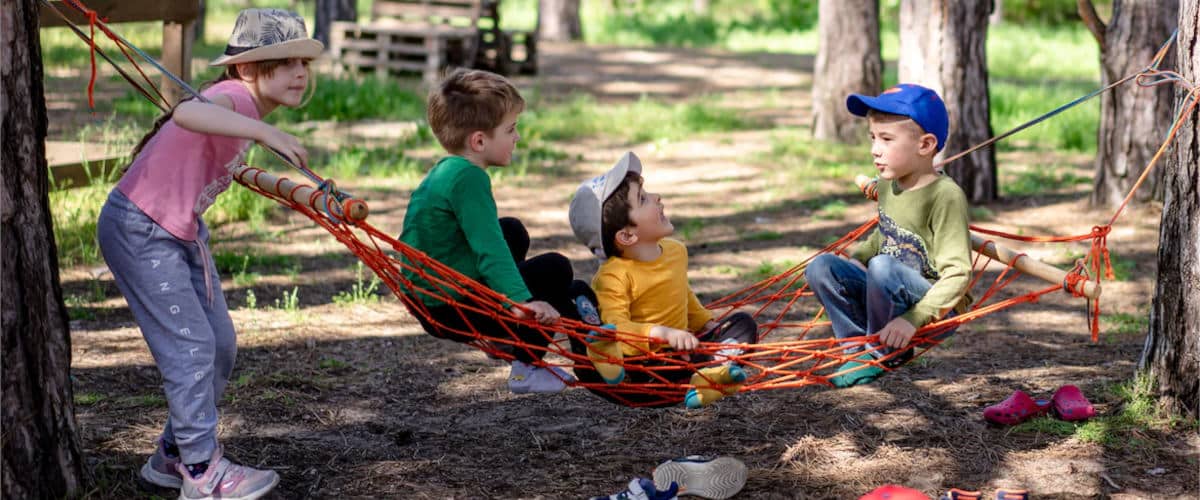
Recently we have mentioned on numerous occasions the symbolic game in Madres Hoy. We did it when talking about the Pikler pedagogy or when this week we recommended toys for children from 6 to 8 years. But, what is it and what does the symbolic game consist of?
Symbolic play is very important for the little ones as it helps them to develop both their creativity and many other skills. And it is that this game of using objects to represent others allows the implementation of behaviors learned through observation.
What is the symbolic game?
Pretend play is any activity in which children recreate a scenario through different objects and/or symbolically represent characters and daily activities for their entertainment. An exercise, in short, of creativity and observation.

Do you need examples? When children use cardboard boxes to build a fort or pretend that the broom is a horse, we are talking about pretend play. But also when they exercise masters of their stuffed animals or together with other children they play mamas and papas.
The symbolic game thus stimulates the learning of the little ones and contributes to develop social-emotional skills and competencies. That is why it is so important and that is why as parents we must promote it and encourage them to do so.
Benefits of symbolic play
As we have mentioned, the symbolic game is very important during the first years of the child and contributes numerous benefits to your development. And we will talk about these below, since they improve both their intellectual, social, physical or mental functions.
- Promotes and stimulates your creativity.
- The helps express feelings and emotions like fear, anger, or sadness through other characters.
- Encourage the acquisition of new behaviors.
- When the symbolic game is practiced in a group, your vocabulary expands.
- In addition, it stimulates the learning of social skills and skills such as cooperation and teamwork.
- Contributes to knowledge of the environment and how things work.
At what age do they begin to develop it and how?
Around 8 months, children begin to observe more carefully and explore their environment. It is then that they begin to be aware that the rattle makes a noise when it falls to the ground or that the cars go "broom, broom"... the sounds then become a tool for provocation and play.
However, it is not until around the age of two when children acquire the necessary skills to develop symbolic play. And it is that half that develop their imagination and language, their ability to create scenarios and represent more complex situations grows.
You will notice that when your child starts to play, he will tend to do it conventional shape, following some rules so to speak. The cars will be cars, the toy telephones will be used to talk and the cups in the kitchen to drink water.
However, there will be a time when this changes. A car could also be a plane, a plastic cup a mountain, a broom a horse and a box a house. will begin to use one object to represent a different one and will delve into the symbolic game. A type of game whose possibilities will reach their maximum when they start playing next to other children or with other children at 4 or 5 years old.
The group symbolic game will invite the children to come to agreements to set standards and even goals. The roles will come into play and they will even be able to generate sequences. The game will then become a combination of what they imagine and what they observe. One day they will become moms and dads, another student teacher, another plane crew member... and as a mother you will be able to learn a lot about how they see the world by observing without intervening while having fun.
Did you know the term symbolic game? Has it become clear to you what the symbolic game consists of and how it develops? It is essential and very beneficial in childhood so do not hesitate to promote it.